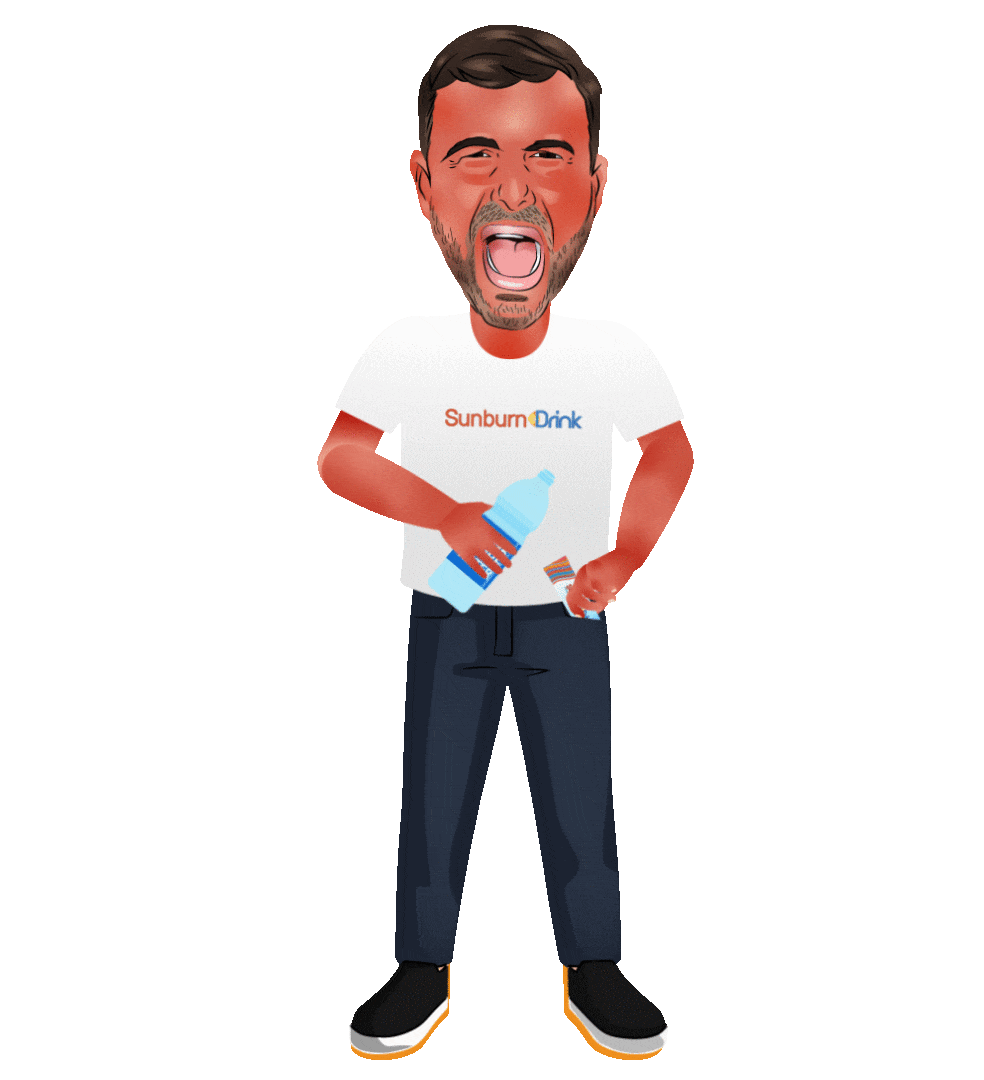Protecting Your Skin and Promoting Recovery
Summer is the perfect time to soak up the sun and enjoy outdoor activities. However, sunburns can still occur on cloudy days due to the sun’s damaging rays. Contrary to what many people believe, when the sun gets blocked by clouds, people are still at risk of getting sunburned. In this blog post, we will discuss the importance of sun protection and provide you with a comprehensive guide to a popular query- Can you get sunburned on cloudy days?
Understanding Sunburns on Cloudy Days
Clouds may provide temporary relief from the scorching heat, but they offer little protection from the sun’s ultraviolet (UV) rays. UV radiation is still present, even on overcast days, and can easily penetrate through clouds. In fact, clouds can even enhance UV radiation by reflecting and scattering the rays, intensifying their effect on your skin.
When you spend time outdoors without proper sun protection, your skin becomes susceptible to the damaging effects of UV radiation. When the skin’s outer layers get burned by excessive UV light, it results in sunburn. This damage sets off an inflammatory reaction, which results in distinctive redness, discomfort, and peeling skin. So can you get sunburned on cloudy days?
The Importance of Sun Protection
Sunburn can be avoided with proper precautions. In addition to avoiding painful sunburns, shielding your skin from UV radiation also reduces your chance of developing skin cancer and long-term skin damage. Here are some essential recommendations for sun protection:
- Apply Sunscreen: Wear a broad-spectrum sunblock with an SPF of 30 or higher irrespective of the weather prediction. Reapply sunscreen every two hours, particularly after swimming or perspiring.
- Wear Protective Clothing: To protect your skin from the sun, wear light, long-sleeved clothing, wide-brimmed hats, and cotton trousers.
- Seek Shade: Remain as much as you can in the shade between 10 am and 4 pm, when the rays of the sun are at their most intense, to minimize UV exposure.
- Use Sunglasses: Wearing sunglasses that offer 100% UV protection will shield your eyes from damaging UV radiation.
Sunburn Recovery: Soothing Your Skin
If you do find yourself with a sunburn on a cloudy day, it’s important to take immediate action to promote healing and relieve discomfort. Here are some tips to help soothe your sunburned skin:
1. Hydrate, Hydrate, Hydrate
Sunburn can dehydrate your body, making it crucial to drink plenty of water. Staying well-hydrated not only supports overall healing but also helps replenish moisture lost due to sunburn.
2. Cool Compresses or Cold Showers
Applying cool compresses or taking cold showers can help alleviate the heat and reduce inflammation associated with sunburn. Avoid using ice directly on the skin to prevent further damage.
3. Moisturize with Aloe Vera
Sunburns may be cured naturally using aloe vera, which has been practiced for generations. To soothe and hydrate burnt skin, gently apply aloe vera gel. For the best benefits, go for pure aloe vera gel without alcohol or perfumes.
4. Use Over-the-Counter Pain Relievers
Over-the-counter pain relievers such as ibuprofen or aspirin can help ease the pain, reduce inflammation, and provide temporary relief. Always follow the instructions on the packaging and consult a healthcare professional if needed.
5. Avoid Further Sun Exposure
During the recovery period, it is crucial to keep the affected area protected from the sun. Your sunburned skin is more susceptible to damage, and exposing it to the sun’s rays can worsen the condition and slow down the healing process.
6. Drink Sunburn
What about having a drink to ease your sunburn?
Enter Sunburn Drink.
Sunburn Drink is enriched with powerful antioxidants that combat oxidative stress, neutralizing free radicals and minimizing the impact of UV rays on your skin.
Packed with essential micronutrients and carefully selected ingredients, this innovative drink is designed to combat the effects of UV damage, soothe irritated skin, and accelerate the healing process.
Seeking Medical Attention
In severe cases, sunburn can cause significant pain, blistering, fever, and even heatstroke. If your sunburn is accompanied by these symptoms or if it covers a large area of your body, it is essential to seek medical attention. A healthcare professional can provide appropriate treatment and guide you through the recovery process.
Preventing Future Sunburns
While recovering from a sunburn, it’s essential to remember that prevention is the best strategy. Here are some additional sun protection measures to protect your skin in the future:
- Plan Around Peak Hours: Limit your time outdoors between 10 am and 4 pm when the sun’s rays are strongest.
- Choose Shade: Seek shade whenever possible, especially during peak hours.
- Cover Up: Wear protective clothing, including hats and sunglasses, to shield your skin from direct sunlight.
- Opt for Broad-Spectrum Sunscreen: Use sunscreen with broad-spectrum protection to guard against both UVA and UVB rays.
- Don’t Forget Your Lips & Ears: Apply lip balm with SPF and wear a wide-brimmed hat to protect your lips and ears.
By adopting these preventive measures and adhering to sun protection practices, you can significantly reduce the risk of sunburn and protect your skin from potential long-term damage.
Conclusion
Even on cloudy days, sunburn can still occur due to the sun’s harmful UV rays. Understanding the importance of sun protection and being proactive in preventing sunburn is crucial for maintaining healthy skin. If you do get sunburned, following the tips for sunburn recovery can help ease discomfort and promote healing.
Remember, prevention is the key to enjoying the outdoors safely. Protect your skin by wearing sunscreen, seeking shade, and wearing protective clothing, even on cloudy days. By doing so, you’ll be able to enjoy the summer sun without worrying about painful sunburns or long-term skin damage. Stay safe and take care of your skin!
Disclaimer: This blog post is for informational purposes only and should not substitute professional medical advice. Always consult with a healthcare professional for personalized guidance and advice.

